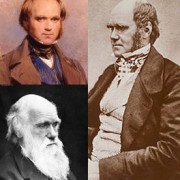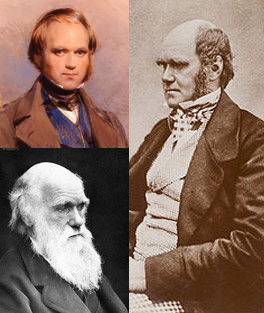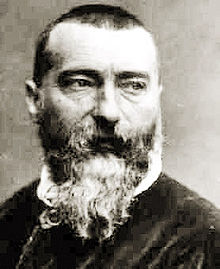MONTHLY BLOG 5, STUDYING HISTORY FOR LOVE AND USEFULNESS COMBINED
If citing, please kindly acknowledge copyright © Penelope J. Corfield (2011)
History as a University subject will have to fight harder for its custom – and why not? It has strong arguments for its cause. But they do need to be made loudly and clearly.
From 2012 onwards the success or failure of subjects will depend upon student choice under the new tuition fees regime (outside the protected ring-fence of state funding for Science; Technology; Engineering; and Mathematics). For good or ill, that sudden policy change creates a competitive market. It will be based on the choices of eighteen-year-olds, for all teaching (and hence research) in the Arts, Humanities and Social Sciences.
For History (meaning History as a subject for study), there is a risk. Not that interest in the endless ramifications of the subject will die. An interest in the human past is very pervasive among humans who live in and through time. It may take the form of ancestor worship. Or maybe swapping anecdotes about past sporting heroes. Or watching history programmes on TV. Or a myriad of other ways. In sum, a generalised interest in the human past is completely safe from the vagaries of fashion.
The risk, however, applies to the academic study of History. It may be marginalised by a stampede to take courses which seem more immediately ‘useful’ and/or more likely to lead to lucrative employment. Law, business management, and – for the numerate – economics might seem like the hot choices.
In fact, however, studying History is a good career choice. It focuses upon a great subject – the living and collective human past. Nothing could be more wide-ranging and fascinating. It is open and endless in its scope. And simultaneously it inculcates an impressive range of skills, which are individually and socially useful.
For that reason, History graduates go on to have careers in an impressive variety of fields. They experience relatively low levels of graduate unemployment. And they find mid-career changes much less difficult than do many others.
Forget old moans about ‘History is bunk’. Henry Ford who is credited with this pithy dictum (in fact, it may have been polished by a journalist) came to regret it deeply. It took a lot of accumulated human history to be able to manufacture a motor car. [For more on Henry Ford and the motor car, see P.J. Corfield’s Discussion-Piece pdf/1 All People are Living Histories: Which is Why History Matters – within this website section What is History?]
Forget too easy comments such as ‘History is dead’. In fact, the human past is a complicated mixture of things that have departed and things that survive. Like human DNA for a start: individuals come and go but, as long as the species survives, so does human DNA as a collective inheritance. The same applies to human languages. Some do disappear, with the communities who spoke them. Some mutate into different but related forms, like Latin into Italian. And most languages evolve slowly over many centuries, with all sorts of transfusions and minglings on the way: like English. The incredibly complex human past is far from over. It lives as long as humans as a species live.
The point is that History should be studied both for love of the subject AND for its individual and collective usefulness. It is not an either/or choice. But a rational choice to get BOTH.
People have many times listed the benefits to be gained from studying History, in terms of its high-level synthesis of both Knowledge and Skills. So the following list is not unique. These are the points that occur to me (Feb. 2011) and I look forward to learning of others.
THE STUDY OF HISTORY AT UNIVERSITY:
- teaches students about their own society and its past
- teaches also about other countries in the same part of the world
- also takes a world-wide perspective and teaches about far distant places
- enables students to switch their analytical focus as appropriate between close-focus studies AND broad surveys
- teaches about periods of history that are close in time and also far distant in time
- therefore encourages students to think through time and about time; and
- allows extensive choice of specific periods, countries and/or themes for study, drawing upon the huge documented range of human experience
- trains students simultaneously to analyse a magnificent array of sources, from words to numbers to pictures to sounds to physical objects – and even, in some cases, the smells of the past
- teaches students to detect fraudulent use of sources
- trains students to search for and use appropriate sources for their independent studies
- requires the continuous weighing and assessing of disparate, imperfect and often contradictory evidence to formulate reasoned conclusions
- inculcates the expression of cogent argument both in writing and in communal debate
- also trains students to read and to assess critically a huge quantity of writings by expert authorities, who often disagree
- trains students to use historical websites and databases both adeptly and critically
- encourages students to think cogently about the links (and disjunctures) between the past and present
- studies the meanings and often conflicting interpretations attached to the past
- trains people to help with dispute resolution through historical understanding (‘where people are coming from’) and through empathy even for causes which are not endorsed personally
- teaches the distinction between sympathy (personal support) and empathy (contextual understanding without necessarily endorsing)
- allows students to distinguish between history as propaganda and history as reasoned (though still often disputed) analysis
- allows students to analyse and debate the nature of studying the past; and
- above all, inculcates an understanding of the human past within a historical perspective.
In sum, studying History at University can be undertaken for love and usefulness combined. It offers access to a huge, fascinating and endless subject, drawing upon the entire range of human experience and requiring a high synthesis of skills and knowledge.
No wonder that Francis Bacon (1561-1626) long ago praised an understanding of the human past simply as: ‘Histories make men [humans] wise’.
For further discussion, see Twitter
To read other discussion-points, please click here
To download Monthly Blog 5 please click here


 Lastly, for historians, it is also not surprising to find that gradual change is a powerful force in human history. There are many long-term trends that are slow and relatively imperceptible at the time. One example is the world-wide spread of literacy since circa 1700. Certainly there have been oscillations in the trend; but it is unlikely to be reversed, short of global catastrophe.
Lastly, for historians, it is also not surprising to find that gradual change is a powerful force in human history. There are many long-term trends that are slow and relatively imperceptible at the time. One example is the world-wide spread of literacy since circa 1700. Certainly there have been oscillations in the trend; but it is unlikely to be reversed, short of global catastrophe.
 Of course, Karr was not completely right. Changes undoubtedly do happen, both gradually and dramatically. But they are always tempered by the power of Continuity. In fact, innovations may fail or prove to be counterproductive – either because opponents consciously strive to circumvent change – or because the innovations are imperfectly planned and/or implemented – or because the innovations have anyway little intrinsic chance of success.
Of course, Karr was not completely right. Changes undoubtedly do happen, both gradually and dramatically. But they are always tempered by the power of Continuity. In fact, innovations may fail or prove to be counterproductive – either because opponents consciously strive to circumvent change – or because the innovations are imperfectly planned and/or implemented – or because the innovations have anyway little intrinsic chance of success.